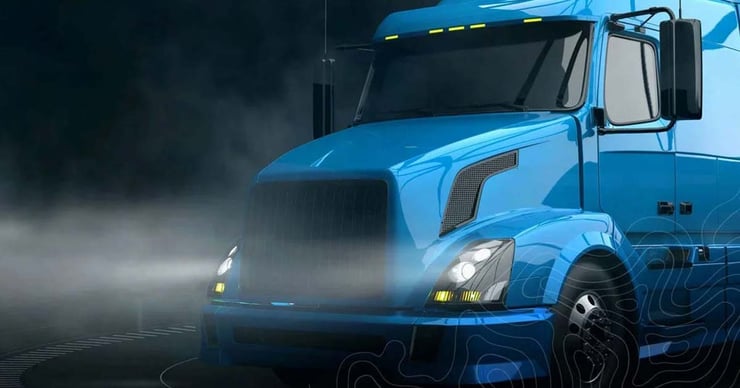
How Severe Weather Is Driving Demand for Expedited Freight Services
February 4, 2026 | Dan Boaz
Recent winter storm cycles are no longer isolated disruptions. Repeated waves of snow, ice, and extreme cold are now a seasonal pattern that consistently impacts national parcel and freight networks. Ground stops, aircraft deicing delays, frozen ramps, and temporary hub closures ripple quickly through FedEx, UPS, and USPS systems, turning minor weather events into multi-day service failures. For logistics managers, these disruptions translate directly into business risk. Missed production schedules, empty retail shelves, delayed medical supplies, and breached service-level agreements can all stem from a single weather-driven delay. As a result, more shippers are rethinking their winter logistics strategies and shifting critical freight to expedited shipping and same day delivery services that can move within hours rather than days. This shift is not about upgrading every shipment. It is...
Read More About How Severe Weather Is Driving Demand ...
Midwest Winter Weather and Expedited Freight
January 23, 2026 | Dan Boaz
Winter weather in the Midwest can bring freight shipping to a standstill, turning routine routes into major challenges. HotShotTrucking.com’s hot shot trucking and expedited freight services keep supply chains moving even when snow and ice threaten to shut down logistics.
Read More About Midwest Winter Weather and Expedited ...
Trucking Companies in Michigan
January 22, 2026 | Dan Boaz
From Detroit to the Upper Peninsula, get hot shot trucking and expedited freight handled with safety-first drivers, rapid dispatch, and real-time shipment visibility.
Read More About Trucking Companies in Michigan
Connecting Tennessee’s Automotive Industry with Mexico
January 10, 2026 | Dan Boaz
Tennessee has emerged as an automotive manufacturing powerhouse, home to major assembly plants and a vast network of over 900 suppliers across the state. From Nissan’s sprawling operations in Smyrna and Decherd to Volkswagen’s high-tech plant in Chattanooga and General Motors’ extensive facilities in Spring Hill, the Volunteer State produces hundreds of thousands of vehicles annually.
Read More About Connecting Tennessee’s Automotive ...
Hot Shot Trucking and Cross-Border Logistics in Texas
January 1, 2026 | Dan Boaz
The Texas-Mexico border is the busiest trade gateway in North America. Every day, thousands of trucks shuttle across international bridges in Texas, carrying auto parts, aerospace components, electronics, and other high-value goods between the United States and Mexico.
Read More About Hot Shot Trucking and Cross-Border ...
Hot Shot Trucking for the Construction Industry
December 23, 2025 | Dan Boaz
In the U.S. construction industry, projects operate under tight schedules where any delay can cascade into cost overruns and idle crews. Construction sites often have crews waiting on critical materials or components – if those items don’t arrive on time, work might halt.
Read More About Hot Shot Trucking for the Construction ...
Trucking Companies in Texas
October 10, 2025 | Dan Boaz
Texas boasts one of the largest and fastest-growing economies in the world, powered by industries from energy and manufacturing to technology and agriculture. In fact, if Texas were its own country it would rank around the eighth-largest globally by GDP. This economic might creates enormous demand for freight transportation. Thousands of trucking companies in Texas operate around the clock to keep factories running, store shelves stocked, and oilfields supplied.
Read More About Trucking Companies in Texas
Hot Shot Trucking and the Stargate AI Data Center in Abilene, Texas
September 22, 2025 | Dan Boaz
The Stargate data center project in Abilene, Texas is nothing short of historic. Announced in early 2025 by a joint venture of OpenAI, SoftBank, and Oracle, the project aims to invest up to $500 billion in U.S. artificial intelligence infrastructure and was touted to create over 100,000 jobs nationwide.
Read More About Hot Shot Trucking and the Stargate AI ...
Space Command Huntsville: The Role of Expedited Freight
September 19, 2025 | Dan Boaz
The decision to base the U.S. Space Command headquarters in Huntsville, Alabama – known as “Rocket City” – marks a pivotal moment for both national defense and the local economy.
Read More About Space Command Huntsville: The Role of ...
What is Hot Shot Trucking?
August 12, 2025 | Dan Boaz
Hot shot trucking is a specialized freight service focused on speed, flexibility, and delivering time-critical hot shot loads. Hot shot trucking services involves hauling smaller, urgent shipments on short notice and delivering them directly to their destination as fast as possible.
Read More About What is Hot Shot Trucking?
Houston Hot Shot Delivery
May 15, 2025 | Dan Boaz
Houston’s position as a national energy hub means urgent shipping needs are commonplace. When a critical piece of equipment fails in an oilfield or at a refinery, hot shot delivery services become a supply-chain lifeline for the Houston economy. Hot shot trucking is a niche but vital segment of the trucking industry, specializing in rapid, on-demand transport of smaller, time-sensitive freight loads. In a logistics hub like Houston hot shot trucking plays an outsized role in keeping supply chains moving efficiently. This article provides a detailed overview of hot shot trucking in Houston, examining its definition and role in logistics, the Houston market’s characteristics, current trends and statistics, the industries it serves, operational dynamics, regulatory and safety considerations, technology adoption, as well as key challenges and growth opportunities for operators in the region.
Read More About Houston Hot Shot Delivery
Flatbed Trucking Companies
May 13, 2025 | Dan Boaz
Flatbed trucking plays a pivotal role in modern logistics, which is why you see so many open-deck trailers on highways today. Unlike enclosed vans, flatbed trucks have no walls or roof, enabling them to haul oversized and unconventional freight that keeps supply chains agile. From construction beams to heavy machinery, flatbeds provide the flexibility to load cargo from any side and deliver to locations without loading docks. This article offers a comprehensive look at flatbed trucking companies—how they operate, the advantages they offer, the industries that rely on them, and how shippers can choose the right carrier. By understanding these elements, logistics managers can better leverage flatbed services to improve delivery speed, reduce handling risks, and enhance overall supply-chain efficiency.
Read More About Flatbed Trucking Companies
Understanding Full Truckload Services (FTL)
March 20, 2025 | Dan Boaz
Full Truckload (FTL) services have solidified their place as a vital shipping solution for expedited freight. With the trucking industry powering over 70% of the nation’s freight, FTL stands out as a key service that helps to ensure supply chains operate seamlessly. But what drives the enduring value of FTL and why are industries using it? Whether you’re wrestling with freight costs or hunting for the best rates, learning about the capabilities and benefits of full truckload can help you succeed in today’s fast-moving logistics landscape.
Read More About Understanding Full Truckload Services ...
Regulatory and Legislative Update - March 2025
March 19, 2025 | Hank Seaton
Contents Regulation and Enforcement Comments on broker transparency proposal are due March 20 Adrienne Camire named FMCSA acting administrator Senate confirms Chavez-DeRemer as Labor secretary EPA plans to reverse electric vehicle mandate, reconsider NOx rule CVSA schedules International Roadcheck for May 13-15 Legislation Senate panel holds hearing on cargo fraud and theft Courts Carrier sues TQL for refusing FMCSA dictate over disclosure Advocacy and Comment Regulation and Enforcement Comments on broker transparency proposal are due March 20 As discussed last month, FMCSA under the Trump administration has signaled that it is inclined to pursue the broker transparency proceeding launched late in the Biden administration. Although virtually all other regulatory activity has been halted pending review, FMCSA reopened the comment period that initially ended on January 21. Comments are...
Read More About Regulatory and Legislative Update - ...
Regulatory and Legislative Update - February 2025
February 26, 2025 | Hank Seaton
Contents Regulation and Enforcement FMCSA reopens comment period on broker transparency Truck Leasing Task Force issues final report opposing lease-purchase programs DOT appoints several FMCSA officials FMCSA withdraws several pending rulemaking following regulatory freeze Nomination hearing for Trump’s DOL pick slated for February 19 Trump orders 10-for-1 deregulation initiative EPA refers Biden administration’s CARB waivers to Congress Legislation Bills on FMCSA enforcement authority introduced in the House and Senate Advocacy and Comment Regulation and Enforcement FMCSA reopens comment period on broker transparency In a sign that the Trump administration is considering expanded broker transparency in some form, FMCSA has reopened the comment period on the notice of proposed rulemaking (NPRM) issued last November despite a halt on almost all other federal regulatory activity initiated...
Read More About Regulatory and Legislative Update - ...
